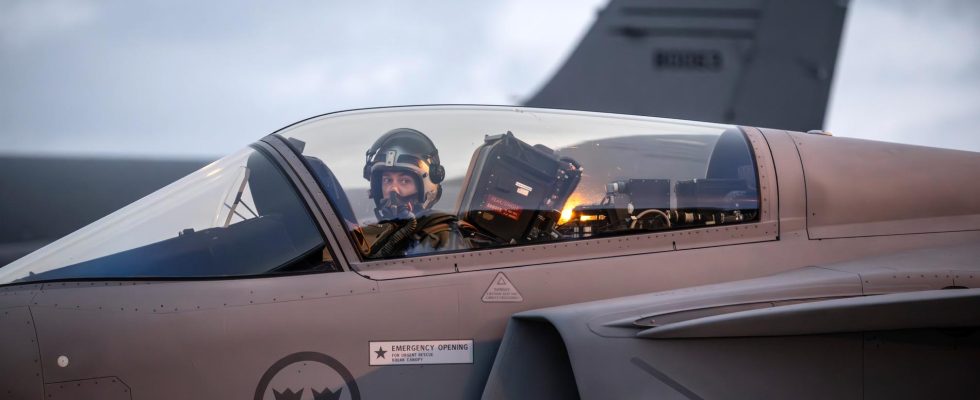unsaveSave
expand-left
full screen
chevron-rightnext
The air force, led by the Jas 39 Gripen, accounts for the largest part of the emissions from the Swedish defense’s fuel consumption, according to an FOI report. Archive image.
1 / 2Photo: Anders Wiklund/TT
Heavy armored vehicles and fighter jets spew exhaust fumes. The military must take responsibility for reducing emissions, according to NATO chief Jens Stoltenberg.
– The climate issue is of great importance for safety, he tells TT.
Defense is growing and with NATO more foreign units, ships and aircraft are expected on Swedish soil. But in the “medium term” it is not expected to affect the emissions, mainly due to personnel restrictions, the Swedish Armed Forces assess.
“The time after that, we find it difficult to comment on,” reads a comment to TT.
Amplifies conflicts
For the military, operational capability is paramount. But climate work is also important, according to NATO chief Jens Stoltenberg.
– Climate change intensifies conflicts. Struggle for limited natural resources will drive large population movements. Therefore it concerns our security, therefore it concerns NATO, he tells TT.
– Moving heavy armored vehicles, ships and aircraft causes large emissions. The military sector must take its share of the responsibility to reduce emissions.
NATO’s goal is to reduce emissions by 45 percent by 2030 and reach net zero by 2050. At the same time, Steadfast Defender, the largest NATO exercise since the Cold War, is underway. The exercises are an important part of deterrence against Russia and will not stop, but perhaps the climate footprint can be lowered?
– We work to produce more sustainable and green technology. In not very many years, I am sure that the best engines, the most advanced planes and ships will not be fossil fueled, says Stoltenberg.
– We cannot have a military sector that is the last fossil fuel in society. We must keep up with the technological revolution that is underway, not least to ensure that we have the best military capacity. It is about both climate and safety.
No reduction obligation
In official statistics, the size of the emissions from the Armed Forces is an estimate as the authority reports its fuel consumption to the Swedish Environmental Protection Agency as total energy consumed. Energy consumption per branch of defense is not reported for confidentiality reasons. But the emissions are small when compared to the total, according to a manager at the Environmental Protection Agency.
The armed forces state that its needs amount to 1 percent of the national consumption of fossil fuels. The authority is exempt from the reduction obligation, i.e. the mixing of biofuels, for petrol, diesel and jet kerosene.
There is an ambition for increased use of biofuels within NATO. All the demands the alliance places on the Swedish Armed Forces are now being prepared – which decisions will apply to Sweden will “become clear in the future”, according to the defence.
FACTS”Insufficiently reported”
Military forces are estimated in a study from 2022 to be responsible for 5.5 percent of the world’s emissions. But in global climate work, they are a blind spot, not bound by international agreements to report or reduce their emissions.
“Direct emissions from military operations, vehicles and equipment are likely not insignificant, but remain insufficiently reported,” stated the UN environmental program Unep in a report last year.
However, pressure is growing on the UN from experts and organizations that want the military to become more transparent. Arguments that are usually raised are that climate change also leads to threats to the security of states and that the atmosphere makes no difference to where the emissions come from.
Read more
